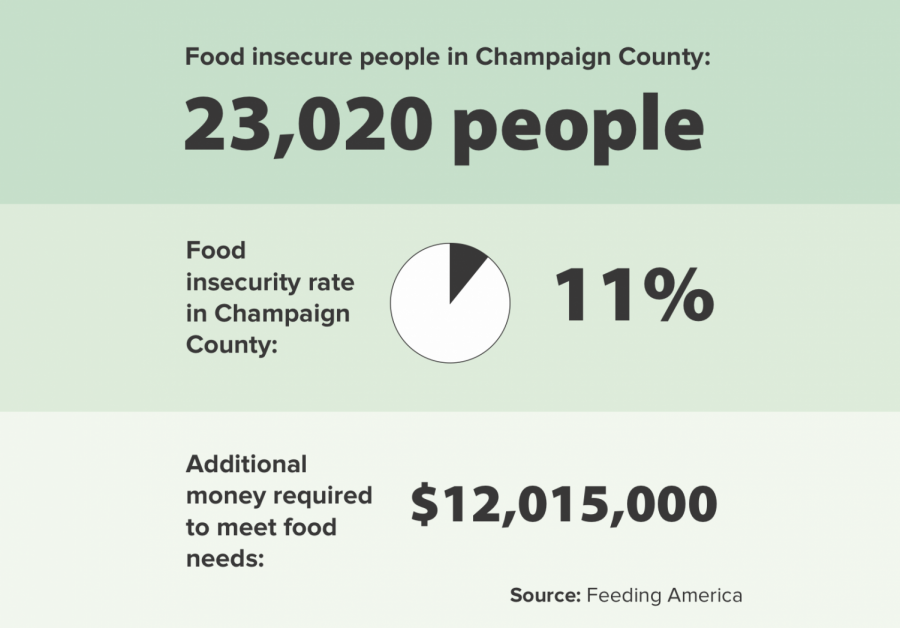ISG-backed food insecurity initiative heading to UI senate
Nov 12, 2020
Efforts to combat food insecurity in the Champaign will be addressed on the floor of the UI Senate on Nov. 15.
The “Food Insecurity in Champaign County” resolution, co-authored by student activist Drake Materre, was passed by the Illinois student government earlier this semester.
“University needs to sit down with community organizations to create a plan to utilize the resources that they have and create a program that can deliver its resources to high-risk individuals,” according to Materre.
According to the University, they have been aware of the food insecurity issues affecting Champaign County and have partnered with various organizations in order to address these concerns.
“In addition to food packaging events there are fundraising campaigns aimed at raising support for food assistance and well-being programs are ongoing and the Department of Food Science Human Nutrition conducts regional research concerning food inequities,” said Chantelle Thompson, director of marketing and communications at Student Affairs.
Get The Daily Illini in your inbox!
The primary programs the University works with to combat food insecurity in the community are known as Waste No Food and Project for Less.
Waste No Food is a digital platform that allows University Housing to post leftover meals on a virtual board and notify local groups who may opt to accept the items. Project for Less is a student-led program hosted through the Wesley Food Pantry that allows volunteers to come to the dining halls to package family portions of food for donations to the pantry.
Materre is focused on constructing this diversion program in order to help high-risk individuals but has been focusing on domestic violence victims or survivors.
The rate of domestic violence crimes in Champaign County is the fourth highest in the state of Illinois, and one of the main calls police receive in the county.
“The diversion program will focus on transformative justice rehabilitation programs for the perpetrator and the survivor of domestic violence. There’s a lot of a lot of things that would go into it such as discussions on masculinity and femininity, nutrition education, food preparation and cooking,” Materre said.
Materre is currently running a nutrition education course for children who have become victims of domestic violence. This class helps individuals relieve stress and deal with their trauma.
“I do believe children need to be involved in this conversation because they have become victims and survivors of domestic violence. I believe that would be beneficial for them as a healing process,” Materre said.
Removing the responsibility of police officers and including social workers into this program is another factor that Materre hopes to adapt to the process to provide adequate help to the community. He has been talking with social workers and police officers in the past few months in order to address the concerns and properly address the systemic issues in the community.
“The point of the diversion program is to create a foundation so when this is solidified, we can all work together to depower police and battle food security and domestic violence on a community level,” Materre said.






